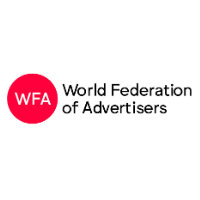 The World Federation of Advertisers (WFA), a trade body which aims to represent the interests of marketers worldwide, today issued a ‘Global Media Charter’ in which it demands reform of the digital advertising ecosystem. The charter calls for players across the industry to work together to create “a safer, more transparent, more consumer-friendly environment.”
The World Federation of Advertisers (WFA), a trade body which aims to represent the interests of marketers worldwide, today issued a ‘Global Media Charter’ in which it demands reform of the digital advertising ecosystem. The charter calls for players across the industry to work together to create “a safer, more transparent, more consumer-friendly environment.”
The charter outlines eight specific calls to action, which the WFA says build on the complaints and calls for change issued by Procter & Gamble’s Marc Pritchard in 2017, and Unilever’s Keith Weed earlier this year. The association says it worked with both of these companies, as well as Mastercard, Diageo and others, and also advertiser associations in countries including the US, China, Japan, Germany and France, to develop the eight principles.
The association frames the demands as a response to low levels of consumer trust in online ads and high levels of ad blocking, citing a PageFair study released last year which found that ad blocking is growing 30 percent year-on-year globally.
“It’s not just about knowing that budgets have been well spent. We also need to be reassured that brand and consumer interests are protected in these new platforms,” said Stephan Loerke, CEO of the WFA.
The eight ‘Principles for Partnership’ laid out by the WFA are as follows
- Zero tolerance to ad fraud with compensation for any breach
- Strict brand safety protection
- Minimum viewability thresholds
- Transparency throughout the supply-chain
- Third-party verification and measurement as a minimum requirement
- Removal of ‘walled garden’ issues
- Improving standards of data transparency
- Take steps to improve the consumer experience
These principles will not come as a surprise to most within the industry, as all are centred around problems which have already been widely highlighted as areas where change is needed.
Many within the digital advertising ecosystem have already taken steps to follow these principles, too. The likes of Adobe, Amobee and Google, for example, already refund fraudulent traffic, and many companies have been forced to improve their data standards in order to comply with the EU’s General Data Protection Regulation (GDPR).
However, the WFA’s announcement is significant due to the weight of the organisation (the WFA claims its members represent 90 percent of the world’s marketing communications spend), and the severity of the language used. The association warned that agencies, ad tech companies and media platforms need to comply “if they want to secure advertising revenues in the future.”
David Wheldon, president of the WFA and CMO of RBS, echeod this tone. “It’s high time the industry as a whole drew a line in the sand and said enough is enough; things need to change and fast,” he said. “The WFA Global Media Charter is critical in that it lists what brands need from their online partners so that the system can be sustainable. Put simply, it’s the only future for the online advertising ecosystem.”




